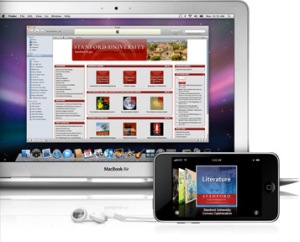
Pupils in Kitgum, Northern Uganda
Uganda before me
So Great Britain colonized Uganda for 66 years (from 1896 to 1962). In 1962 Uganda got her independence and since then Uganda has been led by Ugandan presidents. Somewhere in between 1962 and 1986 there were quite a number of civil wars and military coups in Uganda.
In 1987 I was born, was a few months after the end of the war which saw the incumbent president of Uganda Yoweri Kaguta Museveni over throw Idi Amin. My mother told me a lot of stories about the 1986 coup and how my family had to move places running away from war.
The real story
But that is not the real story. The real story is that even though developing countries have over the years looked up to the so called “developed countries” as the sources of knowledge, pace and trend makers, in reality there has been a huge backward-shift in knowledge and information sharing patterns. Today we are witnessing more knowledge gaps in the developed countries. We are seeing outstanding personalities originally from the developing countries rising on to the international scene.
Rewind
Unfortunately on many of my international trips people still ask me about Idi Amin – one of my recent encounters was in South Africa in 2010 when a stranger from Zimbabwe read off my conference tag that I was from Uganda. He posed a bit before he asked me – so, you are from Uganda? The land of Idi Amin.
Usually I want to tell people that I never even knew him (Idi Amin) – even though I learnt a lot about him in School. I was born a year after the fall of his regime and even though he was the president of Uganda at some point, his legacy doesn’t represent the Uganda/ Ugandans of today. But then again how much can you teach a person whose knowledge about your country is only until 1986?
Earlier I watched this “A Dam Relief begins in May 2012 – Uganda’s Truth will follow” video and at some point a bunch of Americans are asked what they know about Uganda or even whether they have considered coming to Uganda on holiday – the lady in the video says “Uganda has never actually appeared to me as a place for holiday”!
The Uganda I live in
This is when I want to scream that Uganda is actually the Pearl of Africa, home to the Source of the Nile, the famous snow capped Mountain Rwenzori, Lake Bunyonyi the second deepest lake in Africa, home of various and unique cultures. That Uganda flourishes with wild life..holds the most potential in uncovered wild life.. That Uganda is a peaceful country and full of life.
More Knowledge gaps
It is quite interesting and rather DEPRESSING every time I learn that people in the so called developed countries know so little about Uganda and other developing countries at large. I watched the above video just a few minutes ago and all I see is a huge imbalance in knowledge.
On my international travels people ask me “where did you learn to speak English? Its quite interesting to hear that you can speak so well!” So I explain how English is my official language extra. Apart from speaking English so well, I also know a lot about North America, parts of Europe, Asia and of course lots about Africa – the cultures, economic activities or geography of these regions. This is because my (Uganda’s) education system makes it mandatory for me to learn about the world at different levels through my education.
When I reflect on all this ignorance I appreciate that my education system opens boarders and teaches me about the parts of the world which as a child or student I never even imagined I would visit in my life. As I speak, I have been blessed to see different countries across Africa, parts of North America, Asia and spent a couple of hours in Middle East.
However, I am very much concerned and disappointed when I learn that the rest of the world learns almost nothing about my country, culture extra.
The new era of human interaction
Thank God for the social media and interactive social networks! People can now share information and learn about cultures in very interactive ways. But then again, this opportunity is a take or leave for many of the young teenagers who should learn about as much about the world they live in.
Question remains: Is this shift in the knowledge sharing patterns going to be effective if the countries in the west do not make it mandatory for the children to learn about the east the same way my education system does?




